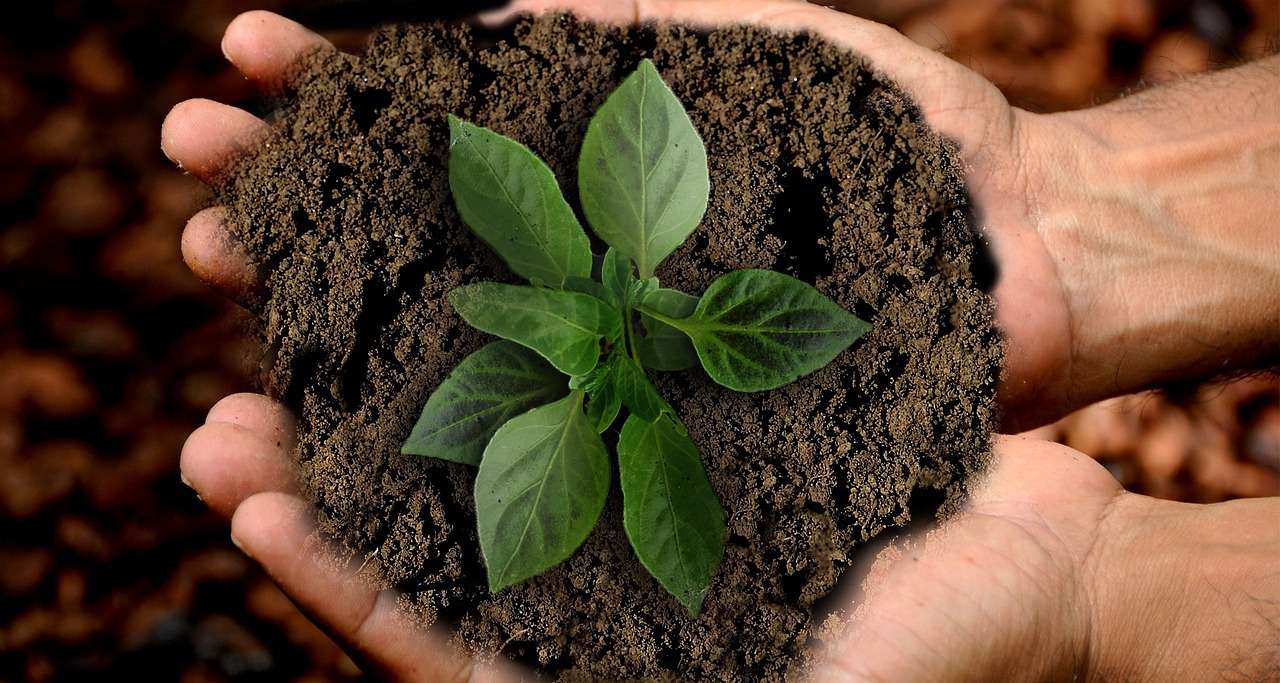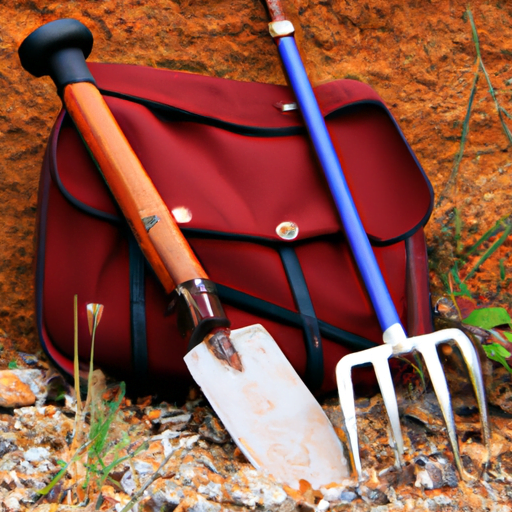Living off the grid requires a unique set of skills that enable individuals to be self-sufficient and independent from the mainstream society. From sustainable food production and basic survival techniques to renewable energy generation and problem-solving abilities, there are various competencies needed to thrive in this alternative lifestyle. In this article, I will explore the essential skills necessary for off-grid living, shedding light on the practical knowledge and mindset required to embrace this unconventional way of life.

Self-Sufficiency Skills
Food Production
Growing your own food is a crucial skill for off-grid living. Being able to produce your own fruits, vegetables, and herbs ensures a constant and reliable food source. Understanding the basics of gardening, such as soil management, crop rotation, and pest control, is essential. Additionally, learning how to save seeds for future planting allows for sustainability in your food production. By mastering food production, you can have control over your diet and reduce reliance on outside sources for nourishment.
Water Management
Water is another vital resource for off-grid living, and learning how to effectively manage it is key. Techniques such as rainwater harvesting and building natural filtration systems can help in obtaining clean water. Knowing how to properly store and conserve water is crucial to ensure a steady supply in times of scarcity. Understanding different water sources and purification methods is also valuable knowledge. With the ability to manage water effectively, you can maintain a sustainable and reliable water supply for all your needs.
Energy Generation
In off-grid living, being able to generate your own energy is fundamental. Knowing different methods of energy generation, such as solar panels, wind turbines, and hydroelectric systems, allows for independence from the electrical grid. Learning about the installation and maintenance of these systems ensures their optimal performance. By harnessing renewable energy sources, you can power your home and reduce reliance on non-renewable resources, leading to a more sustainable and eco-friendly lifestyle.
Waste Disposal
Proper waste disposal is an important aspect of off-grid living. Understanding how to handle and dispose of waste in an environmentally friendly manner is crucial for maintaining a clean and healthy living environment. Learning about composting, recycling, and reusing waste materials helps reduce your ecological footprint and promotes sustainability. By implementing effective waste disposal methods, you can contribute to a cleaner and more eco-friendly surrounding while minimizing your impact on the environment.
Survival Skills
First Aid
Being knowledgeable in first aid is essential for off-grid living, as immediate medical care may not be readily available. Learning basic first aid techniques, such as CPR, wound care, and treating fractures, can be lifesaving in emergency situations. It is also important to know how to identify and respond to common illnesses and injuries. By having the skills to handle medical emergencies, you can ensure the well-being and safety of yourself and others in off-grid settings.
Navigation
Being able to navigate your surroundings without reliance on technology is a critical skill for off-grid living. Learning how to read maps, use a compass, and understand natural landmarks allows you to find your way, even in unfamiliar territory. Developing navigation skills can help prevent getting lost and ensure a safe return home. By honing your navigation abilities, you can confidently explore the wilderness and operate without the aid of GPS or other electronic devices.
Fire Building
Fire is not only a means of keeping warm in off-grid living but also essential for cooking and purifying water. Understanding different fire-building techniques, such as using natural tinder and kindling, allows you to create fire even under challenging conditions. Learning to manage and maintain a fire ensures a reliable source of heat and cooking in the absence of electricity. By mastering the art of fire building, you can adapt to various environments and maintain warmth, safety, and sustenance.
Shelter Construction
Having the ability to construct sturdy and functional shelters is crucial for off-grid living, especially in wilderness settings. Understanding basic building techniques, such as framing, roofing, and insulation, allows you to create a safe and comfortable living space. Learning about natural materials and their use in shelter construction can also be advantageous for a more sustainable and eco-friendly approach. By acquiring the skills to build shelters, you can adapt to different environments and ensure your protection and comfort in off-grid living.
Foraging
Foraging is the skill of finding and collecting wild edibles from the surrounding environment. Being able to identify edible plants, mushrooms, and berries can provide an additional food source and supplement your diet. However, it is crucial to have a thorough understanding of local flora and their potential toxicity to avoid ingesting harmful plants. By honing your foraging skills, you can diversify your diet and thrive in off-grid living.

Construction and Repair Skills
Building
Having basic building skills is essential for off-grid living. Understanding construction techniques, such as framing, roofing, and masonry, allows you to build and maintain structures that withstand environmental challenges. Whether it is a small shed or a more complex structure like a cabin, knowing how to build ensures a reliable and comfortable living space. By developing construction skills, you can create durable structures tailored to your needs in off-grid locations.
Plumbing
Plumbing skills are important for off-grid living, as it ensures access to clean water and proper waste management. Knowing how to install, repair, and maintain plumbing systems, including pipes, pumps, and water storage tanks, is crucial. Additionally, learning about various water filtration methods to ensure a safe water supply is key. By mastering plumbing skills, you can ensure a steady water flow and efficient waste disposal in off-grid settings.
Electrical
Understanding basic electrical systems is important for off-grid living, especially when utilizing renewable energy sources. Knowing how to install and maintain electrical wiring, solar panels, batteries, and inverters allows you to generate and distribute electricity effectively. It is also crucial to have knowledge of electrical safety precautions and troubleshooting techniques for maintaining a reliable electrical system. By acquiring electrical skills, you can optimize your energy generation and utilization in off-grid living.
Mechanical
Having mechanical skills is valuable for off-grid living to maintain and repair various mechanical systems and equipment. Understanding the basics of mechanics, including the functionality of engines, pumps, and generators, allows you to handle repairs and troubleshooting. It is also important to have knowledge of mechanical tools and their proper usage. By developing mechanical skills, you can extend the lifespan of mechanical equipment and ensure their optimal performance in off-grid settings.
Carpentry
Carpentry skills are indispensable for off-grid living, as it allows you to fabricate and repair various wooden structures and furniture. Understanding woodworking techniques, such as cutting, measuring, and joining, enables you to create functional and aesthetically pleasing items. Additionally, having knowledge of different types of wood and their properties helps in selecting suitable materials. By mastering carpentry skills, you can customize your living space and create practical and durable wooden structures in off-grid environments.
Problem-Solving Skills
Critical Thinking
Critical thinking is a fundamental skill for off-grid living, as it allows you to analyze and evaluate situations objectively. Being able to assess problems, identify potential solutions, and make informed decisions is crucial. Critical thinking also helps in adapting to unforeseen circumstances and finding creative solutions to challenges. By sharpening your critical thinking skills, you can navigate through various off-grid situations with confidence.
Adaptability
Off-grid living often requires adaptability as environments and circumstances can change unexpectedly. Being flexible, open-minded, and willing to learn new skills and techniques allows for successful adaptation. Adaptability also involves adjusting to limited resources or unexpected shortages. By cultivating adaptability, you can navigate through different off-grid scenarios and effectively respond to changing conditions.
Resourcefulness
Resourcefulness is a valuable skill for off-grid living, as it involves making the most of available resources and finding innovative solutions. Being able to repurpose materials, utilize alternative methods, and think outside the box contributes to self-sufficiency. Resourcefulness also promotes sustainable practices by reducing waste and maximizing efficiency. By developing resourcefulness, you can overcome challenges and thrive in off-grid living.
Innovation
Innovation plays a significant role in off-grid living as it involves finding new and improved ways of doing things. Being open to experimentation and exploring alternative techniques allows for continuous improvement. Innovation can lead to the development of more efficient energy generation systems, sustainable farming methods, and creative solutions to daily challenges. By embracing innovation, you can enhance your off-grid lifestyle and contribute to the advancement of sustainable practices.
Decision Making
Effective decision making is a vital skill for off-grid living, as it directly impacts your self-sufficiency and well-being. Being able to weigh options, consider risks and benefits, and make informed choices ensures optimal outcomes. Decision making also involves prioritizing tasks, allocating resources, and managing time effectively. By sharpening your decision-making skills, you can confidently tackle off-grid challenges and make choices that align with your goals and values.

Communication Skills
Interpersonal
Interpersonal communication skills are important for off-grid living, as it involves effectively interacting and collaborating with others. Being able to communicate clearly, actively listen, and express yourself in a respectful manner promotes harmonious relationships. Interpersonal skills are particularly crucial when living in close proximity with others in off-grid communities or during emergency situations. By honing your interpersonal communication skills, you can foster positive connections and navigate social dynamics in off-grid living.
Negotiation
Negotiation skills are valuable in off-grid living, especially when dealing with resource management and communal decision making. Being able to find common ground, articulate your needs, and reach mutually beneficial agreements ensures fair and efficient outcomes. Negotiation skills are particularly important in off-grid communities where shared resources and responsibilities require effective collaboration. By developing negotiation skills, you can resolve conflicts and promote cooperation in off-grid settings.
Conflict Resolution
Conflict is inevitable in any community or living arrangement, including off-grid settings. Having conflict resolution skills allows you to address conflicts in a constructive and peaceful manner. Being able to identify underlying issues, actively listen to all parties involved, and find mutually satisfactory solutions helps maintain harmony within the community. Conflict resolution skills also promote healthy communication and prevent the escalation of conflicts. By mastering conflict resolution skills, you can create a harmonious and productive environment in off-grid living.
Emergency Communication
Off-grid living can entail potential emergencies where effective communication is crucial for safety and well-being. Knowing how to communicate vital information, alert others, and call for help is paramount. Understanding emergency protocols and available communication devices, such as radios or satellite phones, is essential. By being proficient in emergency communication, you can ensure swift response and assistance in critical situations.
Gardening and Horticulture Skills
Soil Management
Soil management is essential for successful gardening in off-grid living. Understanding different soil types, their composition, and fertility levels allows for informed decisions when planting crops. Knowing how to amend and improve soil quality through techniques like composting, mulching, and crop rotation is crucial. Proper soil management promotes healthy plant growth and maximizes yield in off-grid gardens.
Crop Rotation
Crop rotation is a technique used in gardening to maintain soil fertility and prevent the buildup of pests and diseases. Understanding the science behind crop rotation and implementing proper rotation schedules helps optimize plant health and yield. By rotating crops, you can minimize the need for chemical fertilizers and pesticides, making your gardening practices more sustainable and eco-friendly.
Seed Saving
Seed saving is an important skill for off-grid living, as it allows for self-sufficiency and the preservation of heirloom varieties. Understanding how to select, harvest, clean, and store seeds ensures a continuous supply of plant genetics for future planting. By saving seeds, you can adapt to local conditions, reduce reliance on external seed sources, and maintain a diverse and resilient garden in off-grid settings.
Composting
Composting is a natural process of recycling organic waste and turning it into nutrient-rich soil. Understanding the different components of a compost pile, such as green and brown materials, and the proper balance between them ensures a healthy composting process. Using compost in gardening enriches the soil, improves plant growth, and reduces the need for chemical fertilizers. By learning composting techniques, you can minimize waste and enhance the sustainability of your off-grid gardening practices.
Pest Control
Effective pest control is crucial for maintaining a healthy garden in off-grid living. Understanding organic pest control methods, such as companion planting, biological controls, and physical barriers, helps manage pests without relying on harmful chemicals. Recognizing common garden pests and their life cycles allows for timely intervention and prevention. By implementing sustainable pest control practices, you can protect your plants and ensure a bountiful harvest in off-grid gardening.

Livestock and Animal Husbandry Skills
Animal Care
Raising livestock is a valuable aspect of off-grid living, providing a sustainable source of food and other resources. Understanding the proper care and management of animals, including feeding, sheltering, and health maintenance, is crucial. Knowledge of animal behavior, common diseases, and veterinary care ensures the well-being and productivity of your livestock. By mastering animal care skills, you can create a self-sustaining farming system in off-grid environments.
Breeding
Breeding skills are important for maintaining a healthy and productive livestock population in off-grid living. Understanding the reproductive cycles and techniques of livestock animals enables you to breed selectively and optimize desired traits. Knowledge of mating, gestation, and birthing processes ensures successful breeding programs. By developing breeding skills, you can sustain and improve your livestock population, leading to a more self-sufficient off-grid lifestyle.
Milking
Milking skills are essential for off-grid living when raising dairy animals. Learning proper milking techniques, hygiene practices, and milk storage ensures the quality and safety of milk. Knowledge of lactation cycles and udder health management contributes to a consistent milk supply. By mastering milking skills, you can enjoy fresh milk and its byproducts in your off-grid lifestyle.
Fencing
Fencing skills are crucial for establishing boundaries and protecting livestock in off-grid farming. Understanding different fencing materials, design options, and installation techniques ensures secure enclosures and prevents animal escapes. Knowledge of electric fencing and predator deterrents helps mitigate risks to livestock. By developing fencing skills, you can create a safe and controlled environment for your livestock in off-grid living.
Butchering
Butchering skills are necessary for off-grid living when raising animals for meat consumption. Understanding meat cutting, preservation techniques, and food safety practices ensures the utilization and storage of meat. Knowledge of animal anatomy, proper handling, and sanitation prevents contamination. By mastering butchering skills, you can maximize the use of meat resources and maintain a self-sufficient off-grid food supply.
Off-Grid Cooking and Food Preservation Skills
Open Fire Cooking
Mastering the art of open fire cooking is a valuable skill for off-grid living. Understanding different fire structures, heat control, and cooking techniques allows for diverse and delicious meals. Open fire cooking also ensures self-sufficiency, even in the absence of conventional kitchen appliances. By acquiring open fire cooking skills, you can enjoy the traditional method of cooking while embracing the simplicity and self-reliance of off-grid living.
Solar Cooking
Solar cooking utilizes the power of the sun to cook food, making it a sustainable and energy-efficient method. Understanding how solar cookers work, optimal cooking times, and suitable recipes allows for efficient cooking in off-grid environments. Solar cooking also eliminates the need for traditional fuel sources, reducing reliance on non-renewable resources. By learning solar cooking techniques, you can prepare meals while harnessing the power of the sun in your off-grid lifestyle.
Canning and Fermenting
Canning and fermenting are food preservation techniques vital for off-grid living. Understanding the process of canning, including proper sterilization and sealing, allows for long-term preservation of fruits, vegetables, and even meats. Fermenting, on the other hand, involves the preservation of food through the activity of beneficial microbes. This process creates a variety of flavorful and nutritious foods such as sauerkraut, kimchi, and pickles. By mastering canning and fermenting skills, you can preserve food for extended periods and minimize waste in off-grid living.
Drying and Smoking
Drying and smoking are other methods of food preservation suitable for off-grid living. Understanding drying techniques, such as sun drying or using a food dehydrator, allows for the preservation of fruits, vegetables, and herbs. Smoking, on the other hand, involves exposing food to smoke produced from burning wood, adding flavor and preserving the food. By utilizing drying and smoking methods, you can extend the shelf life of perishable foods, ensuring a steady supply of nourishment in off-grid settings.
Sustainable and Eco-Friendly Practices
Reducing Consumption
A fundamental principle of off-grid living is reducing consumption to lessen the impact on the environment. Learning how to live with less, prioritize needs over wants, and avoid unnecessary waste is essential. This can involve consciously conserving resources like water, energy, and food, as well as minimizing the use of single-use items and disposable products. By adopting a mindset of reducing consumption, you can embrace a more self-sufficient and eco-friendly lifestyle.
Recycling and Reusing
Recycling and reusing are crucial practices for minimizing waste in off-grid living. Understanding the importance of proper waste separation and recycling materials like paper, glass, plastic, and metal promotes a circular economy. Additionally, embracing the concept of reusing by repurposing items or utilizing second-hand goods reduces the demand for new resources. By incorporating recycling and reusing habits, you can contribute to the conservation of natural resources and the reduction of landfill waste in off-grid settings.
Conservation
Conservation involves being conscious of the impact our actions have on the environment and taking steps to minimize that impact. This can include actively conserving resources like water and energy by implementing efficient systems, such as rainwater harvesting and solar power generation. It also extends to protecting natural habitats, wildlife, and biodiversity through responsible land management and wildlife conservation practices. By prioritizing conservation, you can help preserve the beauty and sustainability of the off-grid locations you inhabit.
Renewable Energy
Off-grid living provides an opportune platform to harness renewable energy sources. Understanding the benefits and limitations of different renewable energy systems, such as solar, wind, and hydro, allows for informed decision-making. By embracing renewable energy, you can reduce reliance on fossil fuels, decrease greenhouse gas emissions, and achieve energy independence in off-grid living. Incorporating renewable energy systems promotes a sustainable and regenerative approach to energy generation.
Permaculture
Permaculture is a holistic approach to designing sustainable systems that mimic natural ecosystems. Understanding the principles of permaculture, such as designing with diversity, observing patterns, and applying thoughtful planning, allows for the creation of self-sufficient and resilient environments. Permaculture involves integrating food production, water management, energy generation, and waste disposal in a harmonious and sustainable manner. By implementing permaculture principles, you can create abundant and thriving off-grid ecosystems that require minimal external inputs.
Mechanical and Maintenance Skills
Equipment Repair
Having the ability to repair equipment is crucial for off-grid living, as it allows for self-sufficiency and maximizes the lifespan of tools and machinery. Understanding the fundamentals of equipment repair, including troubleshooting, diagnosis, and replacement of faulty components, ensures the continuous functionality of essential equipment. By acquiring equipment repair skills, you can maintain and repair vital tools and machinery, reducing the need for outside assistance or replacements.
Tool Usage
Knowing how to use a wide range of tools effectively is necessary for off-grid living. Understanding the purpose and proper usage of tools, such as saws, drills, wrenches, and hammers, enables you to accomplish a variety of tasks. Additionally, learning about tool maintenance and safety precautions ensures their longevity and prevents accidents. By becoming proficient in tool usage, you can handle a multitude of tasks and projects in off-grid environments.
Vehicle Maintenance
In off-grid living, vehicles often serve as essential means of transportation. Knowing how to perform basic vehicle maintenance, such as checking fluid levels, changing oil, and replacing filters, ensures the reliability and longevity of your vehicles. Understanding tire maintenance, battery care, and minor repairs helps keep your vehicles in optimal condition. By mastering vehicle maintenance skills, you can have dependable transportation in off-grid settings, eliminating the need for frequent servicing or repairs from external sources.
Off-Grid System Maintenance
Maintaining off-grid systems, such as solar panels, water filtration systems, and composting toilets, is necessary to ensure their long-term functionality. Understanding the maintenance requirements and schedules for each system allows for efficient upkeep. Regular inspections, cleaning, and occasional repairs guarantee optimal performance and prevent costly system failures. By becoming proficient in off-grid system maintenance, you can sustain reliable and self-sufficient systems in off-grid living.
In conclusion, mastering a wide range of skills is vital for successful off-grid living. From self-sufficiency skills like food production, water management, energy generation, and waste disposal, to survival skills such as first aid, navigation, fire building, shelter construction, and foraging, these abilities ensure independence and resilience in off-grid environments. Construction and repair skills like building, plumbing, electrical work, mechanical repairs, and carpentry promote self-reliance and efficient management of resources. Problem-solving skills, including critical thinking, adaptability, resourcefulness, innovation, and decision making, provide invaluable tools for overcoming challenges. Communication skills like interpersonal communication, negotiation, conflict resolution, and emergency communication foster effective interactions and cooperation. Gardening and horticulture skills such as soil management, crop rotation, seed saving, composting, and pest control enable self-sustaining food production. Livestock and animal husbandry skills like animal care, breeding, milking, fencing, and butchering contribute to a self-sufficient and diverse food supply. Off-grid cooking and food preservation skills like open fire cooking, solar cooking, canning and fermenting, and drying and smoking offer sustainable methods for preparing and preserving food. Sustainable and eco-friendly practices such as reducing consumption, recycling, reusing, conservation, renewable energy, and permaculture are essential for minimizing environmental impact. Lastly, mechanical and maintenance skills encompass equipment repair, tool usage, vehicle maintenance, and off-grid system maintenance, ensuring the functionality and longevity of tools, vehicles, and vital systems in off-grid living. By developing and honing these skills, individuals can thrive in off-grid environments, embracing self-sufficiency, sustainability, and resilience.




